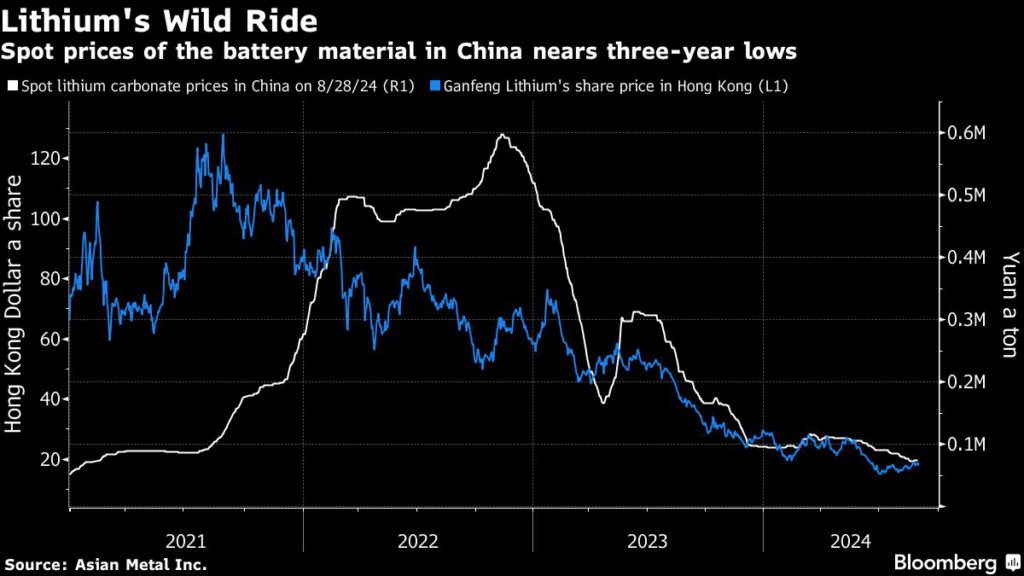
Battery-material giant Ganfeng Lithium Group Co. said it would delay spending on projects that do not generate “significant” near-term returns after posting a first-half loss, as the industry faces a boom-to-bust slump.
The Chinese company — which reported a net loss of 760.4 million yuan ($107 million) from a profit a year earlier — will strictly control spending on future projects and optimize the efficiency of its capital usage, it said in a statement.

The lithium industry has been pitched into turmoil as a glut of supply overwhelmed slower-than-expected demand growth from electric-vehicle makers, driving spot carbonate prices to a three-year low. The drawn-out slump has squeezed producers’ margins, forcing companies to rethink expansion plans, reduce spending, or shutter facilities to weather the downturn.
Ganfeng — which operates in China as well as Argentina, Australia, Mali, and Mexico — said it will ensure projects that generate near-term benefits are put into operation first, while postponing some expenditure on medium- and long-term ventures that don’t fit that framework. It will continue to acquire global resources, but capacity expansions will be subject to future demand trends.
The company’s shares in Hong Kong have reflected the sector’s volatility in recent years, peaking at more than HK$132 in 2021, then collapsing. They were last at HK$17.96 after dropping 3.8% following the results.
The challenging conditions may last for some time. UBS Group AG this week predicted that the lithium market would be in surplus until at least 2027, and reduced its price forecasts by as much as 23%. “While we note some supply is being deferred, it is not enough,” the bank said in a note.
Ganfeng said it invested 38 million yuan in futures trading in the first half, and made a profit of 3.43 million yuan. The company earlier said it would set up a derivatives-trading desk to lower the risks of cross-border investments and to enhance financial stability.
(By Annie Lee)
Read More: Lithium startups bet on high demand in battery-powered future
Comments